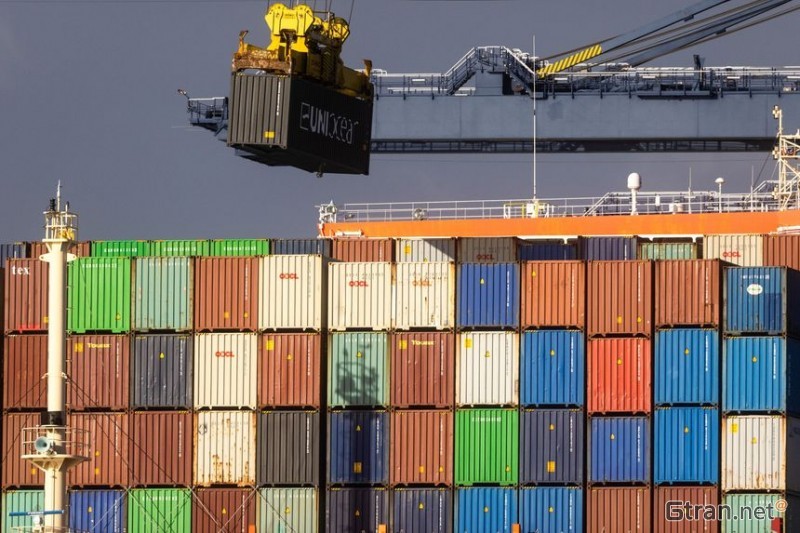Rising interest rates and falling revenues are dampening a recently booming market for mergers and acquisitions

A once-bustling logistics mergers-and-acquisitions market is quieting down as slipping freight demand and higher borrowing costs dampen deal making in the sector.
Company valuations are moderating in a softening freight market and rising borrowing costs are making deals tougher to complete. Executives and deal experts say that is leaving some companies struggling to find buyers as they seek to capitalize on strong growth during the Covid 19 pandemic.
Paul Svindland, chief executive of Bensenville, Ill.-based logistics provider STG Logistics, said more potential deals have crossed his desk in the past month or so than during all of the previous year. He said many companies shopping themselves are forecasting earnings that seem unrealistic in the current freight downturn.
“The mind-set is let me go try to defend the [earnings] even though I know there’s a Covid-related impact,” said Mr. Svindland, whose business acquired the intermodal operations of XPO Logistics Inc. this year for $710 million.
John Anderson, an operating partner at private-equity firm Greenbriar Equity Group, said sellers are coming off banner earnings periods and have high expectations but buyers are having difficulty raising debt to support deals as they weigh uncertainty in freight markets. “There’s a tough time meeting in the middle,“ he said.
The market for freight and logistics companies surged during the pandemic as retailers sought to rush goods to consumers, fueling strong growth in shipping demand, higher freight rates and record profits for companies ranging from regional truck operators to international freight forwarders.
Chris Wofford, the managing partner at West Palm Beach, Fla.-based Wofford Advisors, strategic advisers in global supply chains, said the past two years have been exceptional for big deals as domestic and foreign firms expanded their reach.
Truckload carrier Werner Enterprises Inc. and Knight-Swift Transportation Holdings Inc. expanded their fleets and operations through acquisitions and Uber Technologies Inc.’s Freight unit bought technology-focused transportation management provider Transplace, a strategic expansion of the Uber freight brokerage operation, in a cash and stock deal worth about $2.25 billion.
Foreign-based ocean carriers and freight forwarders have also shown great interest in the U.S. logistics market as they seek to expand their end-to-end supply-chain services.
Germany-based freight forwarder DB Schenker bought Van Buren, Ark.-based truckload carrier USA Truck for about $285 million in September. Denmark-based A.P. Moller-Maersk A/S bought Glen Mills, Pa.-based Pilot Freight Services LLC in a deal valued at $1.68 billion. French container shipping line CMA CGM SA bought U.S.-based Ingram Micro’s Commerce & Lifecycle Services in a deal valued at $3 billion.
Evan Armstrong, president of research group Armstrong & Associates, said there have been hundreds of deals in the less than $10 million range in the third-party logistics sector during the past 18 months, while last year saw 25 deals of over $100 million apiece, the highest number since Armstrong & Associates started tracking such deals in 1999.
Mr. Armstrong said the first half of this year saw 14 such deals, putting 2022 on track to be another strong year. But the market has cooled since then, just as shipping volumes have declined and warnings about a broader global economic downturn have spread.
The slowdown comes amid a worldwide drop in venture-capital investments and a pullback in acquisitions deals as global economic uncertainty and rising interest rates dampen investor confidence.
Mr. Armstrong said rising interest rates may be putting off first-time private-equity investors. But logistics companies looking to expand their reach and private-equity firms looking to expand existing logistics portfolios are still hunting deals. Shipping companies such as Maersk, which have made tens of billions of dollars in profits during the pandemic, are in a strong position to make acquisitions without loading up on debt.
Price remains one of the biggest stumbling blocks. Mr. Armstrong said gross revenues for domestic transportation management grew 52% on average last year and were up 75% year-over-year for international transportation management.
“We’re at a point now where the valuations are kind of hard to come up with because things grew so extraordinarily,” he said.


